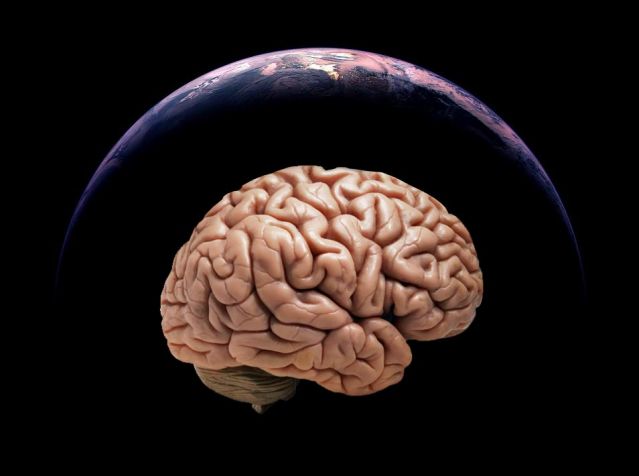Fantasies
Confronting the World’s Great Unrecognized Crisis
There is a relatively simple solution to one of our biggest problems.
Posted November 14, 2013


Think up a short list of the world’s biggest problems. Now identify the one that gets the least attention. My pick is weak skepticism, something that most people fail to consider. But this daily disaster punishes humankind with consistent severity while getting virtually no mention from popular culture. And it’s not only the weak skeptics who suffer. It’s a planet-wide plague that slows human progress. Regardless of status or location, you have a stake in this. A primary reason our species is far behind where it could be socially and technologically is because we invest so much time, effort and wealth into things that are almost certainly not real or true.
Weak skepticism goes unnoticed because it is so pervasive and has been a normal part of the landscape for so long. Some of it may seem harmless (14 percent of Americans think Bigfoot is out there somewhere). Some of it may frustrate science literates (Nearly half of American adults believe the Earth is less than 10,000 years old.) And some of it is just plain weird (several million Americans may believe that "lizard people" run the country). But it’s all symptomatic of a huge problem that costs us dearly. Take a close look and the scale comes into focus.
Even during economically challenging times humankind doesn’t flinch at squandering trillions of dollars on pseudoscience and superstition. Every day, unknown numbers of people in every society suffer because they trust medical quackery over evidence-based medicine. Some of them die. Democracies often produce incompetent leaders because too many people are in the habit of accepting and believing before they think and vote. Distracted by delusions, billions never attempt to connect with the real universe they live in, thereby denying themselves much of the knowledge and excitement it offers. Every moment, somewhere, children are taught speculative nonsense packaged as confirmed facts. But the root problem for all of this—scarcity of skeptical thinking—is rarely acknowledged, much less addressed in any meaningful way. Few parents encourage their children to be skeptical thinkers. Most teachers don’t teach it. Politicians never talk about it. This is the world’s great unrecognized crisis. But it doesn’t have to be this way.
Skepticism is the solution and it’s there waiting for all. Thinking like a scientist in everyday life is a choice. One only has to decide to think before believing. Ask questions, expect the evidence to balance the size of the claim, and be willing to change your mind when new evidence demands it. Doing these things activates a powerful forcefield that will protect you wherever you go on this fantasy prone and scam-infested world of ours. Being a good skeptic is not dependent on extraordinary intelligence or formal educational accomplishments. There is no application to fill out, no club dues to pay. This is a basic approach to life that is freely available to all of us.
Encouraging skepticism is a moral issue. This is not about winning debates or pursuing pleasant feelings of intellectual superiority. This is about the quality of life for billions. For many it is a life and death issue. Ultimately, nothing less than the fate of the world may be at stake. Science vs. nonsense is no game. It is not difficult to imagine how the strange coupling of anti-science thinking with the more destructive products of science may one day result in our collective doom. It’s time to get serious about the need to put thinking before believing. We might consider the last several thousand years of human history to have been an experiment, one that has yielded more than enough data to support this call for action. The work of scientists has revealed that merely being human sets one up to tumble over one delusion after another. Falling for fantasies is part of the human condition. This is who we are. It’s nothing to be ashamed of but neither is it something to ignore or surrender to. Fortunately the same brain that so often trips us up can also be commissioned to escape and evade irrational beliefs.
I challenge good people who are disturbed by human suffering to confront the crisis of weak skepticism and work to make our world better. If we want to completely wake up and become a thinking species worthy of the name then we must create a global culture where skeptical thinking is valued, one where thinking like a scientist is expected of all. Individuals and societies must recognize skepticism as a necessary component for long-term survival. This can’t be left to a few like me who write books or to a minority of scientists who have the time and inclination to speak up. This will require many voices coming from many places.
It is not enough to improve your own life by becoming a good skeptic. Encourage others to rise up with you. Spread the word about the benefits of skepticism. Promote science and reason with your words and enthusiasm. Become an advocate for science literacy. Make skeptical thinking a public issue. Question irrational beliefs wherever you find them. And be sure to do all of this with kindness in your heart.
Never forget that skepticism is positive and constructive. Skeptics who are mean and arrogant aren’t doing it right. Skepticism is helpful because it is the way people untangle themselves from lies and delusions. It is humble because good skeptics are the first people to admit that they do not know what they do not know. Never worry that it may be impolite to encourage a family member, friend or stranger to embrace skeptical thinking. Impolite is watching a fellow human stumble in the dark without offering to help them find the light switch. Weak skepticism is the global crisis we must confront. For when more of us think before believing fewer will suffer, less fortune will be squandered, and the further our dreams and reason will carry us all.
–Guy P. Harrison is the author of Think: Why you should question everything (Prometheus Books) and other books that promote science and reason.
Ten Resources for the Good Skeptic
Big Picture Science (podcast)
James Randi Educational Foundation
Skepticality (podcast)




